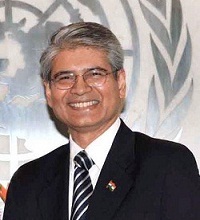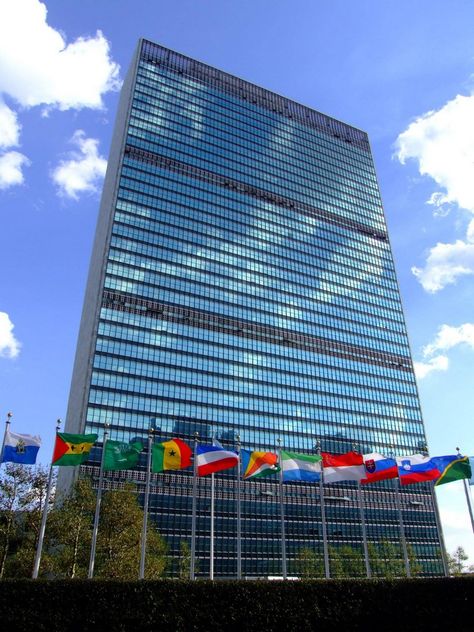Of course, the principle of “sovereign equality” is one of the fundamental pillars of the United Nations system. However, the growing trend among four of the five permanent members of the United Nations Security Council (the United States, China, Russia and the United Kingdom) to assert the primacy of sovereignty over the objectives of international cooperation can potentially alter contemporary global governance structures adversely.
India has a key role, as well as core national interests, in implementing Agenda 2030 and the Paris Agreement on Climate Change. These interests are an integral part of the major initiative announced by Prime Minister Modi under the “sabka saath, sabka vikas” policy. Perhaps the best illustration of India’s ground-based approach is in clean and renewable energy, which is an essential requirement for development.

The year that has just ended was marked by the vigorous reassertion of the principle of sovereignty in international relations. Implicitly, this has challenged the concept of international cooperation, enshrined in the UN Charter 70 years ago. Founding members of the UN, including India, which had suffered the ravages of war and conflict, focused on international cooperation to prevent another world war, while sustaining peace through equitable socio-economic development.
Of course, the principle of “sovereign equality” is one of the fundamental pillars of the United Nations system. However, the growing trend among four of the five permanent members of the United Nations Security Council (the United States, China, Russia and the United Kingdom) to assert the primacy of sovereignty over the objectives of international cooperation can potentially alter contemporary global governance structures adversely.
President Donald Trump, in his maiden address to the UN General Assembly in September 2017, advocated a coalition of “strong and independent nations that embrace their sovereignty”. This was endorsed by Russia. At the 19th Chinese Communist Party Congress in November 2017, President Xi Jinping of China asserted his country’s commitment to weiquan or protection of rights, foremost of which was the right to sovereignty. Outside the United Nations, the United Kingdom, following its referendum in June 2016, been moving inexorably towards asserting its sovereignty in relationship to the European Union through the Brexit negotiations.
While the bigger powers look to give substance to their focus on assertive sovereignty through building up their militaries (and the economic sectors that sustain these militaries), the majority of the 193 countries that are represented in the UN General Assembly have been engaged in maximizing international cooperation to eradicate poverty and sustain their socio-economic development. Just two years before President Trump’s speech, in September 2015, the UN General Assembly had adopted an ambitious road-map to achieve these objectives through the 17 specific Sustainable Development Goals (SDGs) at the heart of Agenda 2030.
The overarching goal, SDG 1, is eradication of poverty. In 2013, about 10 per cent of the global population, or 767 million people, lived below the World Bank’s poverty line of US$1.90 a day. Of these, the majority were in sub-Saharan Africa (389 million) and South Asia (256 million). It is clear from this that eradication of poverty as a priority requires international cooperation, which allows the flow of investments, trade and people in a supportive atmosphere of peace and security. The fact that the most active United Nations peacekeeping operations today are in sub-Saharan Africa, where ironically the bulk of the peace-keeping troops are from South Asia, is an illustration of the challenges ahead.
Agenda 2030 was accompanied by two other important global decisions on international cooperation on sustainable development. One was a commitment to facilitate the use of appropriate cyber technologies for development and empowerment, especially to bridge the digital divides, as part of the High-Level Review of the Tunis Agenda of the UN. The second was the prioritization on replacing fossil-fuels with renewable energy for sustaining development, which was endorsed by the Paris Climate Change Conference. Both these decisions were reached in December 2015.
India has a key role, as well as core national interests, in implementing Agenda 2030 and the Paris Agreement on Climate Change. These interests are an integral part of the major initiative announced by Prime Minister Modi under the “sabka saath, sabka vikas” policy. Perhaps the best illustration of India’s ground-based approach is in clean and renewable energy, which is an essential requirement for development.
While the Agenda 2030 negotiations on clean energy (SDG 7) were underway at the United Nations, India had announced its national goal of generating 175 GW of renewable energy by 2022. This was followed up by India’s bold initiative (endorsed by France) of proposing an International Solar Alliance (ISA) of 121 countries to accelerate investments, the transfer of appropriate technologies, and sharing of developmental experiences in using renewable energy for sustainable development. The ISA came into being on 6 December 2017, following the ratification of the treaty establishing the ISA as an inter-governmental organization by 15 countries. It is the only such international organization headquartered in India.
Developing economies like India are today at the center of effective international cooperation. They not only offer the markets for investments, but through the application of technology by skilled professionals successfully showcase an inter-connected (and inter-dependent) world.
The call to assertive sovereignty by raising new protectionist barriers to the flow of people, data, investments and technologies poses a direct challenge to effective and equitable international cooperation. The issue of sovereignty therefore needs to be placed in the context of the 21st century. As Germany aptly stated at the UN General Assembly in September 2017, “in international cooperation, no one loses sovereignty. Rather we all gain new sovereignty which we could no longer have as nation-states on our own in today’s world.”
(The author, a career diplomat, was India’s Permanent Representative to the United Nations from April 2013 to December 2015. He can be reached at 1955pram@gmail.com)
